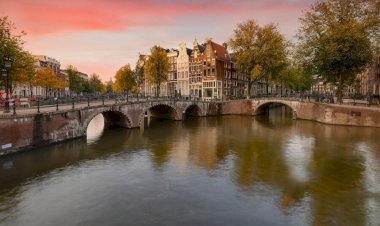Portugal Golden Visa 2025: Cultural vs Fund Investment Routes Explained
Discover the 2025 Golden Visa investment options in Portugal—compare cultural donations vs fund investments and explore D7 visa as an alternative.

Portugal’s Golden Visa program continues to be a leading choice for people from outside the EU who want to live in Europe, travel freely in the Schengen Area, and eventually become Portuguese citizens. In 2025, the rules have changed—real estate and capital transfers are out, while cultural and fund investments remain valid. This guide explains how these two investment options work, what they cost, and which one may suit you best.
What Is the Portugal Golden Visa Program?

Launched in 2012, the Portugal Golden Visa program gives residence permits to non-EU citizens who invest in approved areas of the Portuguese economy. After holding legal residency for five years, applicants can apply for Portuguese citizenship—without needing to live in Portugal full-time.
As of late 2023, the program has removed real estate and capital transfer options. The remaining valid routes are:
-
Fund Investment: €500,000 minimum
-
Cultural Investment: €250,000 minimum, or €200,000 in rural areas
Updated Golden Visa Eligibility Criteria (2025)

| Investment Route | Minimum Investment | Residency Required | Citizenship Eligible |
|---|---|---|---|
| Venture Capital / Fund | €500,000 | 7 days/year | After 5 years |
| Cultural Project Donation | €250,000 / €200,000 | 7 days/year | After 5 years |
Additional Requirements:
-
Clean criminal record
-
Valid passport
-
Legal entry into Portugal
-
Proof of investment and source of funds
Route 1: Cultural Investment Option

This path is ideal for those who want to support arts and heritage in Portugal. By donating €250,000 (or €200,000 in a low-density area), you support national projects like museums, theaters, historical restorations, and artistic foundations.
Benefits:
-
Lowest required investment
-
Supports social and cultural causes
-
Easier for middle-income families
-
Quick and simple legal process
Considerations:
-
No financial return—this is a donation
-
You’ll need to select an approved cultural entity
-
Less attractive for profit-focused investors
Example Donations:
-
Restoration of a historic castle
-
Museum or local art project sponsorship
-
Regional theater preservation
Once you choose your project, your lawyer handles the transfer and paperwork with Portugal’s immigration office (SEF).
Route 2: Investment Fund Option

This option allows you to invest €500,000 into regulated Portuguese venture capital or private equity funds. These funds usually focus on sectors like tech, healthcare, green energy, or real estate development (not direct ownership).
Benefits:
-
Potential for profit on your investment
-
Backed by professional fund managers
-
Fully legal route to Portuguese residency and citizenship
Considerations:
-
Higher cost compared to cultural donation
-
Investment risk based on fund performance
-
May involve more legal and financial complexity
Read Also: Best Cities in Portugal for UK Investors and Expats
Head-to-Head Comparison: Cultural vs Fund Investment
| Feature | Cultural Investment | Fund Investment |
|---|---|---|
| Minimum Investment | €250,000 (or €200,000) | €500,000 |
| Financial Return | No | Possible |
| Risk Level | Very Low | Moderate to High |
| Process Complexity | Simple | Medium to High |
| Ideal for | Families, retirees | Entrepreneurs, high earners |
| Residency Requirement | 7 days/year | 7 days/year |
| Path to Citizenship | Yes, after 5 years | Yes, after 5 years |
What About the Portugal D7 Visa?

The Portugal D7 Visa, often called the Passive Income or Retirement Visa, is a great alternative for people who don’t want to invest large sums of money.
You qualify if you have a regular passive income (from pensions, rental properties, or savings interest) and plan to live in Portugal.
Key Requirements in 2025:
-
Minimum monthly income: €820 (based on the Portuguese minimum wage)
-
Proof of income (e.g., pension slips, bank interest)
-
Portuguese address (rental or owned)
-
Health insurance coverage
-
No criminal record
This visa was initially introduced for those retiring in Portugal, but today, it’s also popular among remote workers and digital nomads.
Benefits of D7 Visa:
-
No investment required
-
Fast route to residency and later citizenship
-
Spouses and dependents can be included
-
Access to public healthcare and schools
-
Citizenship eligible after 5 years of living in Portugal
Final Thoughts
If you're aiming for European residency with the potential to gain citizenship, Portugal offers excellent pathways in 2025. The Golden Visa remains a solid investment-backed route, especially through:
-
Cultural Investment for socially conscious applicants
-
Fund Investment for those seeking financial returns
Alternatively, the D7 Visa offers a lower-cost path for people with steady passive income and the willingness to settle in Portugal full-time.
Whichever path you choose, always consult a licensed immigration lawyer or investment advisor to guide you through the legal and financial steps.
Frequently Asked Questions (FAQs)
Q1. Can I bring my family with a Golden Visa?
Yes. Your spouse, children, and dependent parents can be included.
Q2. How soon can I apply for citizenship with a Golden Visa?
After 5 years, as long as you meet residency and integration requirements (including basic Portuguese language skills).
Q3. Is there any stay requirement under the Golden Visa?
Yes. You must stay in Portugal at least 7 days per year.
Q4. Is cultural investment tax-deductible?
In some cases, yes. It depends on the project and your tax residency status.
Q5. Can I switch from D7 to Golden Visa later?
Yes, but you'll need to meet the financial and legal criteria for the new visa type.




























